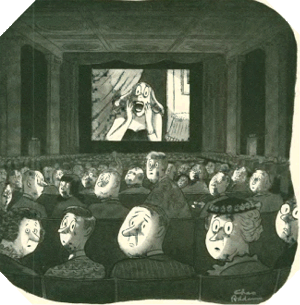The young woman photographed here in an unassuming but strikingly sublime pose, in her early 20‘s at the time, would hardly bear any notice today being dead now some 125 years, except that she was the love interest of an extraordinary man who clearly made his mark in history as an inveterate adventurer in the heyday of wind-powered "Tall Ships" and "Clippers" before they were overwhelmed by steam and eventually oil powered ocean transport.
The little we do know about her is that Joshua Slocum (1844-1909) a Canadian-American seaman and venturesome entrepreneur (and noted writer), the first man to sail single-handedly around the world, met her in Australia (1871), courted, married and carried her off all within a month’s time. Born Virginia Albertina Walker (the result of an interracial paring of a Scotsman and an American native Indian), her family had migrated from America to settle in Australia. She sailed away with Slocum never to return home.
 |
| Joshua Slocum |
Like her husband, she loved adventure, nature and the outdoors. As a girl in
Australia, she was trained to ride horses and on weekends would ride into the Blue Mountains region outside of
Sydney. She would take long horseback expeditions in the Mountains, exploring and sleeping on the ground much as the natives did. She was spectacularly well suited to the strenuous life she had chosen.
Slocum commanded many "Tall Ships" with Virginia at his side and she would give birth to 4 children on various ships. His largest command was a 200 foot clipper ship, the "Northern Light". He was destined to become famous later for his feat in a thirty-six foot Sloop/Yawl, the “Spray”, making the first single-handed voyage around the world. He wrote a book about it, "Sailing Around the World", now a classic of nautical literature, and still in print.
The children, who were raised and educated in a devoted, responsible manner on the high seas, remembered that their mother played the harp, guitar, and a piano which was anchored to the floor in the main cabin, and that she was also an excellent dancer. Virginia was a dead shot with a pistol too. When mutiny flared on the
''Northern Light ", and the first mate mortally stabbed by the ringleader, she sprang to the aid of her husband, covering the crew with a revolver in each hand.
On a trip aboard the
"Aquidneck" to
Buenos Aires, Virginia became seriously ill. She was in bed, seemingly recovering when the ship reached the Plata River and anchored in the outer roads.
Slocum went ashore to organize prospective shippers of freight for a trip to
Sydney. Before he left they agreed on a signal for his return if needed. The signal was the blue and white flag letter "J" to be hoisted. Early one morning, while Virginia was up busy salting butter for the voyage which she hoped would take her home to
Sydney, she suddenly told her son to hoist the letter "J" at once.

Slocum returned and was at her bedside as she breathed her last. Virginia not yet 35, was dead from heart failure. He arranged to have her buried in the
English Cemetery in
Buenos Aires with a stone memorial monument [pictured right in 1884]. In 1892 the cemetery was made into a plaza, so today her remains lie somewhere under the stone slabs of a public square, unmarked, forgotten.
It took
Slocum a
long time to get over Virginia's premature sudden death, if ever. One of his sons wrote that “Father’s days were done with the passing of mother. They were pals…”. Another son said that “When she died, father never recovered. He was like a ship with a broken rudder.” However, some years later, aged 52, he was suddenly inspired to set off on the three-year solo circumnavigation of the globe which was to earn him fame and a modest fortune. It's not hard to imagine that Virginia's spirit accompanied him in some form on this and other lonely sojourns on the high seas. He ultimately disappeared in 1909, last seen sailing his beloved
Spray in the
West Indies, alone.
http://www.youtube.com/watch?v=yVw8axe10QI





























